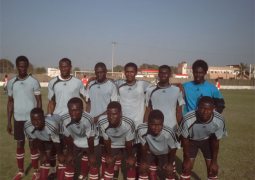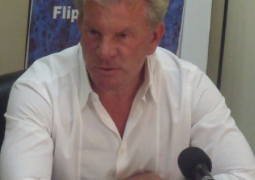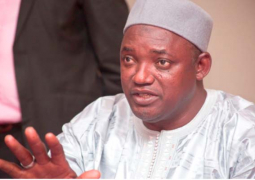The
Launched by the Vice President and minister of Women’s Affairs at the Coco Ocean Hotel in Bijilo, WARCIP-Gambia is part of a US$300 million West Africa Regional Communications Infrastructure Programme.
Funded by the World Bank, the project is among others aimed at fostering regional integration through the development of regional communications infrastructure in
It focuses on contributing to a comprehensive solution that would address the connectivity gaps in the country focusing on international, regional and national connectivity to enable the creation of a fully integrated network, which will provide affordable high speed connectivity to the country.
The regional program is also expected to provide support to 15 countries of the ECOWAS Region to increase the geographical reach of broadband networks and reduce costs of communications services, with its ultimate objective being to support countries in
In her launching statement on behalf of President Yahya Jammeh, the Vice President Isatou Njie-Saidy said the project complements and supports the government’s strategic goal to transform the country’s communications infrastructure to the state-of-the-art technology in order to regain its lost glory and even beyond, as the best amongst the countries with the most advanced telecommunications infrastructure.
The
This, she added, has resulted in traffic imbalance, significant transit charges and resultant high call rates.
She expressed government’s resolve to link the
“This we are on the verge of realizing through our participation in
She noted that the government is cognizant of the fact that to encourage foreign direct investment, especially in the ICT sector, the requisite infrastructure have to be in place.
Government, she went on, has been fully engaged in policies aimed at liberalizing the telecommunications sector, while promoting open access to information and networks which has resulted in granting of Third Generation (3G) mobile network licenses to all GSM operators to ensure that information access is improved and opportunities to make use of ICT applications, especially for education are broadened.
VP Njie-Saidy added that the creation of the public-private partnership between government and the private sector which culminated in the establishment of the Gambia submarine cable company limited will surely contribute to Programme on Accelerated Growth and Employment, PAGE, as well as in line with policy goals of a private sector led economy.
Boutheina Guermazi, World Bank task team leader, explained that WARCIP Gambia is part of US$300 million West Africa Regional Communication Program as endorsed by the board on January 20th 2011.
Noting that the program will provide support to 15 countries of ECOWAS region to increase the geographical coverage of broadband networks, and to reduce costs of communication services, she said The Gambia currently has some of the highest connectivity costs in the world, and is among few countries in West Africa, which is not connected to the global network of broadband optical fiber infrastructure.
According to her, the new platform for connectivity will bring broadband connectivity to many countries in
Mambury Njie, minister of Finance, said the launching of the project marked another significant stride in the country’s efforts to achieve its national development objectives, which he added are geared towards improving information, communication and technology in the country.
According to him, The Gambia like most countries in the sub-region, continuously experience problems in communication connectivity, a situation, he said, which is worsen with challenges of extensive and inadequate submarine connectivity via Senegal.
Other speakers at the launching ceremony included Nancy Njie, permanent secretary Ministry of Information and Communication Infrastructure and Lamin Camara, the WARCIP focal point at the ministry.
Read Other Articles In Article (Archive)
Suspect awaits verdict
Mar 21, 2016, 11:06 AM

Brikama United resume title hunt, as round two fixtures starts June 4
May 27, 2011, 3:28 PM



